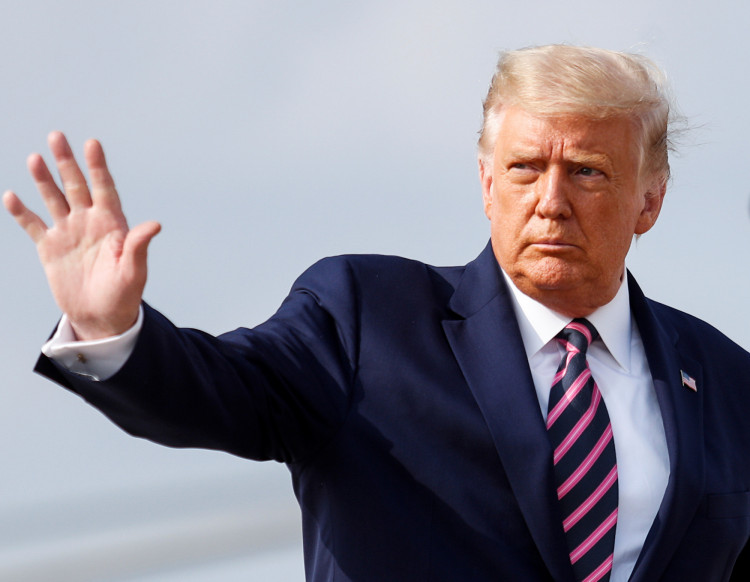Former President Donald Trump, the leading Republican presidential candidate, has reportedly been workshopping a controversial plan to end the Ukraine war that would involve pressuring the American ally to give up some of its territory to the invading Russian forces. According to sources familiar with the plan who spoke to the Washington Post, Trump believes that both Russia and Ukraine "want to save face, they want a way out," and that citizens in the occupied Ukrainian territories would be okay with being assimilated into Russia.
The reported plan, which would see Ukraine give up Crimea and the Donbas border region to Moscow in exchange for a cease-fire, has drawn sharp criticism from both Democrats and Republicans. Ukrainian President Volodymyr Zelensky has repeatedly stated that his nation would not surrender any of its land to the invading Russian forces, and the proposed concession would expand the reach of Russian President Vladimir Putin's dictatorship after what has been the biggest land war in Europe since World War II.
Trump's campaign adviser, Jason Miller, slammed the Washington Post report as "fake news," insisting that his boss will not settle on a peace plan until he is in office and can properly weigh all the options. "The whole thing is fake news from the Washington Post. They're just making it up," Miller told The New York Post. "President Trump is the only one talking about stopping the killing. Joe Biden is talking about more killing."
The reported plan represents a significant shift from the current administration's goals, which seek to provide long-term support to Ukraine to defend itself against Moscow and prevent the Russian state from encroaching further into Eastern Europe. Much of Trump's talk on the campaign trail and with congressional Republicans regarding Ukraine revolves around resisting the Biden administration's call to provide additional funding to Kyiv, which is still experiencing a shortage in ammunition.
Some of Trump's supporters have been trying to persuade him against the reported plan. Republican Senator Lindsey Graham, who spends "100 percent of [his] time talking to Trump about Ukraine," stated that Putin "has to pay a price. He can't win at the end of this." Graham revealed that he advised Trump against letting Russia have the land it wants and would like Trump to support Ukraine's path towards NATO membership.
"The way you end this war to me is you make sure Ukraine gets into NATO and the EU," Graham said. "He (Trump) doesn't say much about that. I don't know if he's thought too much about it."
Information about Trump's plan concerning Ukraine reportedly emerged in Washington last November during a meeting at the Heritage Foundation between center-rightists and the European Council Delegation on Foreign Relations. According to multiple people present for the meeting, Michael Anton, Trump's former aide in the White House, described the expected contours of Trump's peace plan as Ukraine ceding territory in Crimea and Donbas, limiting NATO expansion, and enticing Putin to loosen his growing reliance on China.
Anton, who was contacted by the Washington Post by phone in March, denied knowing anything about Trump's plan for Ukraine and said he hadn't spoken with Trump in 18 to 24 months. He did not respond to further questions.
Trump has often boasted that if he were chosen as president, he would end the war between Russia and Ukraine within 24 hours, but has provided no details on how he would achieve this. The former president's reported plan has sparked intense debate about the future of the conflict and the role of the United States in supporting its allies and promoting stability in the region.
As the 2024 presidential race heats up, Trump's stance on the Ukraine war and his reported plan to pressure the nation into ceding territory to Russia are likely to be a major point of contention. Critics argue that such a move would reward Putin's aggression and undermine the sovereignty and territorial integrity of Ukraine, while supporters claim that it could bring an end to the deadly conflict and prevent further escalation.






